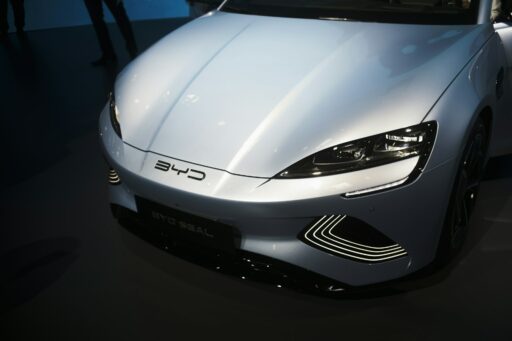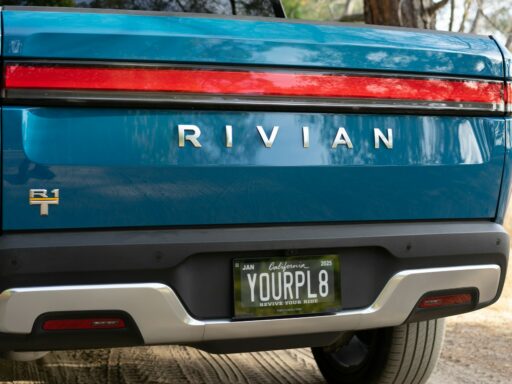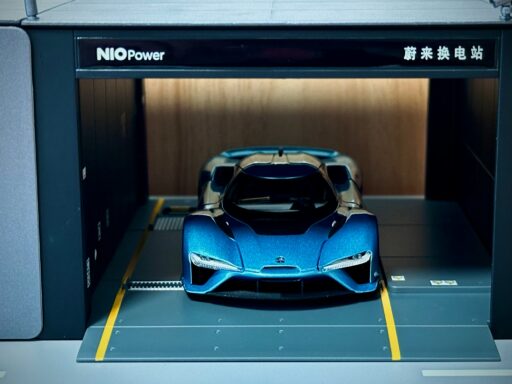BYD, or “Build Your Dreams,” is a leading global player in the electric vehicle (EV) and renewable energy industries. As one of the largest manufacturers of electric vehicles and batteries in the world, BYD is committed to pioneering sustainable technologies to address environmental challenges. The company’s efforts are focused on reducing carbon emissions through its wide range of clean energy products, including electric vehicles, energy storage systems, and solar energy solutions. With a vision to create a sustainable future, BYD has become a leader in advancing electric mobility, renewable energy, and clean technology. In recent years, the company has emerged as a strong advocate for the transition to zero-emission vehicles, with a growing focus on electrifying transportation, reducing dependence on fossil fuels, and improving air quality globally.
In its 2024 sustainability report, BYD highlights its significant achievements in reducing emissions, promoting circular economies, and developing products that support global energy transitions. The company is committed to meeting its net-zero carbon targets by 2050, setting ambitious goals for the future while maintaining a strong market presence in the global EV sector.
- BYD delivered over 1.86 million electric vehicles globally in 2023, solidifying its position as the world’s leading electric vehicle manufacturer.
- The company aims to achieve net-zero carbon emissions across its entire value chain by 2050, with a focus on carbon reduction, energy efficiency, and sustainable manufacturing processes.
- BYD has already reduced its carbon footprint by over 40% in the last decade through various green technologies and practices.
Source: https://www.byd.com/en/news/press-releases/
Sustainability Strategy and Goals
BYD’s sustainability strategy revolves around the principles of “green, low-carbon, and high-tech,” with a focus on minimizing environmental impact across its entire value chain. The company’s overarching goal is to build a greener world through the widespread adoption of electric vehicles and renewable energy solutions, addressing key global sustainability challenges such as climate change and air pollution. BYD has committed to achieving net-zero carbon emissions by 2050, with an interim target to reduce carbon emissions across its operations by 50% by 2030. These commitments align with global sustainability frameworks such as the UN Sustainable Development Goals (SDGs) and the Paris Agreement on climate change.
Central to BYD’s strategy is its dedication to the electrification of transportation. The company has introduced numerous electric models, from buses to passenger vehicles, and aims to continue expanding its portfolio of zero-emission vehicles. Additionally, BYD focuses on the development of energy storage systems and solar solutions to create a fully integrated sustainable energy ecosystem. Through the production of electric batteries, solar panels, and charging infrastructure, BYD is committed to creating a circular economy that maximizes resource efficiency and minimizes waste.
- BYD is targeting to reduce its carbon footprint by 50% by 2030 through a combination of energy efficiency improvements and sustainable production processes.
- In 2023, the company’s electric vehicle sales helped prevent an estimated 4.5 million tons of CO2 emissions globally.
- BYD is aiming for 100% renewable energy usage in its manufacturing facilities by 2030.
Source: https://www.byd.com/en/sustainability/
Key Sustainability Innovations and Technologies
BYD has become synonymous with innovation in clean energy and electric vehicles. The company has made notable strides in advancing its battery technology, particularly with its development of the Blade Battery, which offers superior safety, durability, and energy density compared to traditional lithium-ion batteries. This innovation is particularly crucial in driving the mass adoption of electric vehicles by increasing the lifespan and performance of electric vehicle batteries.
In the field of renewable energy, BYD’s energy storage systems have been designed to optimize power generation and distribution, especially from intermittent renewable sources such as wind and solar. BYD’s Energy Storage Solutions help balance the grid and support the widespread use of renewable energy. Furthermore, the company’s solar panels and integrated solar energy solutions are helping residential, commercial, and industrial customers reduce their reliance on fossil fuels.
BYD’s EVs are also equipped with cutting-edge technologies designed to increase energy efficiency and performance. The ePlatform 3.0, for example, is an integrated platform designed to optimize vehicle performance, improve energy consumption, and reduce manufacturing costs. By improving battery management systems and vehicle powertrains, BYD ensures that its electric vehicles provide superior range, safety, and reliability.
- BYD’s Blade Battery technology has increased energy density by 25% compared to conventional lithium-ion batteries.
- The company’s energy storage systems have helped save over 2.5 billion kilowatt-hours of energy since their launch.
- BYD has reduced vehicle energy consumption by 15% through the ePlatform 3.0, enhancing the efficiency of its electric vehicles.
Source: https://www.byd.com/en/news/press-releases/
Measurable Impacts
BYD’s sustainability initiatives have led to tangible reductions in carbon emissions and improved energy efficiency across multiple sectors. The company’s electric vehicles have displaced millions of tons of CO2 emissions, supporting the global transition to zero-emission mobility. Additionally, BYD’s renewable energy solutions, including its solar power systems and energy storage technologies, have contributed to increased adoption of clean energy sources.
In 2023 alone, BYD’s electric vehicles saved approximately 4.5 million tons of CO2 emissions. The company’s commitment to scaling up its production of electric vehicles, energy storage solutions, and solar products is driving further progress toward achieving its long-term sustainability goals. The company’s electric vehicle sales also contributed significantly to global efforts in reducing dependency on fossil fuels, helping accelerate the transition to sustainable transportation.
Furthermore, BYD’s sustainable production practices have enabled the company to significantly reduce waste and increase recycling efforts in its manufacturing process. BYD has worked to streamline its supply chain and increase resource efficiency in its factories, contributing to its goal of achieving a circular economy.
- In 2023, BYD saved 4.5 million tons of CO2 emissions through its electric vehicles alone.
- The company’s energy storage systems have enabled the storage of over 2.5 billion kilowatt-hours of clean energy.
- BYD has cut manufacturing waste by 20% since 2015 through its sustainable production practices.
Source: https://www.byd.com/en/sustainability/
Challenges and Areas for Improvement
Despite its significant achievements, BYD faces several challenges in achieving its sustainability goals. One of the primary challenges lies in scaling up production to meet the growing global demand for electric vehicles. While the company has rapidly expanded its EV production capacity, further investment in infrastructure, including charging networks and battery production, is required to meet future demand.
Another challenge is the environmental impact of raw materials used in electric vehicle production, particularly the mining of lithium, cobalt, and other materials essential for battery manufacturing. BYD is working to address these challenges by investing in more sustainable battery technologies and exploring recycling initiatives to reduce the need for new raw materials.
Finally, while BYD is committed to renewable energy, the company’s global supply chain and manufacturing facilities are still dependent on some non-renewable energy sources in certain regions. Expanding the use of renewable energy across all facilities and regions is a critical step in achieving the company’s sustainability targets.
- BYD is working to reduce its reliance on cobalt in batteries by 20% by 2025 through the development of alternative materials.
- The company aims to increase the use of recycled materials in its vehicles by 30% by 2025.
- By 2030, BYD is committed to achieving 100% renewable energy use across all its manufacturing facilities.
Source: https://www.byd.com/en/sustainability/
Future Plans and Long-Term Goals
BYD’s future plans are focused on expanding its global presence in the electric vehicle and renewable energy markets. The company plans to increase its electric vehicle production capacity, develop new and more efficient battery technologies, and expand its portfolio of clean energy products.
One of BYD’s key long-term goals is to achieve net-zero carbon emissions by 2050. This will involve improving energy efficiency across all aspects of its operations, from production to logistics, and further accelerating the adoption of renewable energy. BYD also plans to scale up its energy storage and solar power systems, helping to facilitate the integration of renewable energy into the global grid.
The company is investing in research and development to advance next-generation electric vehicles, including innovations in battery technology, charging infrastructure, and vehicle autonomy. As part of its commitment to a circular economy, BYD is exploring new ways to recycle and reuse materials from electric vehicle batteries, thereby reducing waste and increasing resource efficiency.
- BYD aims to achieve net-zero carbon emissions across its operations by 2050, with a focus on zero-emission mobility and energy solutions.
- The company plans to increase its electric vehicle production capacity by 50% by 2025.
- BYD intends to double its investment in renewable energy and energy storage systems by 2027.
Source: https://www.byd.com/en/sustainability/
Comparisons to Industry Competitors
BYD’s sustainability efforts are often compared to other global leaders in the EV and renewable energy industries, such as Tesla, NIO, and Rivian. While Tesla has long been at the forefront of electric vehicle innovation, BYD distinguishes itself through its vertically integrated approach to sustainability, combining electric vehicles, batteries, energy storage, and solar energy solutions into a single ecosystem.
Key Competitors:
- Tesla: Tesla, founded by Elon Musk, is a dominant player in the EV sector with a strong focus on battery technology, autonomous driving, and renewable energy solutions. Tesla and BYD share similar goals of reducing global emissions and driving the adoption of electric mobility. However, Tesla is more focused on premium electric vehicles and autonomous driving technology.
- NIO: NIO is a Chinese EV manufacturer known for its high-performance electric vehicles and innovative battery-swapping technology. NIO focuses heavily on the premium segment and offers a subscription model for its batteries.
- Rivian: Rivian, an American EV manufacturer, focuses on producing electric trucks and SUVs, with a strong emphasis on outdoor adventure and sustainability.
- Tesla aims to increase its global vehicle production to 20 million units per year by 2030.
- NIO is targeting a 50% increase in its EV production capacity by 2025.
- Rivian plans to produce 400,000 electric vehicles annually by 2027.
Source: https://www.tesla.com/sustainability, https://www.nio.com/sustainability, https://www.rivian.com/sustainability
Our Thoughts
BYD has established itself as a sustainability leader in the electric vehicle and renewable energy sectors. With significant advancements in battery technology, energy storage, and electric mobility, the company is well-positioned to drive the transition to a greener future. While challenges remain in scaling production and improving resource efficiency, BYD’s commitment to achieving net-zero emissions by 2050 and expanding its clean energy solutions demonstrates its strong dedication to sustainability.
BYD’s integrated approach to sustainability and innovation serves as a model for the EV industry and beyond. As global demand for electric vehicles and clean energy continues to rise, BYD’s efforts will play a critical role in shaping the future of sustainable transportation and renewable energy.






